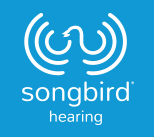Hearing aid distribution channels have undergone multiple changes throughout the years. This series provides information about some of the significant events that have altered how hearing aids are provided to consumers. All the posts in this series: Hearing Aid Distribution I, II, III, and now IV, take the reader through an historical journey of different approaches that have been suggested (but, not all successfully). This series will continue for at least two additional articles. 
INTERNET HEARING AID SALES
Any hearing aid can now be purchased on the Internet. This does not mean that the manufacturers of all these products approve or provide the hearing aids directly, nor do they endorse the practice, but facts are facts. One can access sites such as Lloyds, Doctor’s Hearing Systems, Hearing Help Express, HearPod, Price Depot, MD Hearing Aid, HearingPlanet, Hear-Better, Audicus, Audiotoniq, America Hears, HearSource, DIY Hearing Aids, hi HealthInnovations, Advanced Hearing, Century Hearing Aids, and many others to purchase products with names given to hearing aids from those companies. Additionally, it appears that one can bid on hearing aids made by every major manufacturer on eBay, Bonanza, Choice Hearing Aid Providers, eBid, etc.
It is also a fact that consumers get information about healthcare – including hearing health and hearing aids – from the Internet more than from any other source. To this end, marketing on the Internet, especially on a large scale, appears to be good/smart business. This is obvious in that essentially every office selling hearing aids today has a web site. What complicates the discussion is that most current online hearing aid sales strategies are not illegal, even though many feel that online sales of hearing aids should be.
As a result, the growth of the Internet market has generated strong reaction from many professionals who work with hearing loss, and/or who sell hearing aids. Some created a “Boycott Internet Hearing Aid Sales” movement. Launched by EarQ Group Founder and President Ed Keller, the argument is that having an Internet broker act as a gatekeeper to audiologists and dispensers is not legitimate management of hearing problems.
HearingPlanet
A variation of Internet purchasing of hearing aid purchasing is offered by HearingPlanet.com. They state that purchasing a hearing aid online need not mean that a qualified professional consultation has been neglected. HearingPlanet is a direct-to-consumer hearing care provider (Internet sales) that allows customers to research hearing aids online by providing them with  key search words and sites, and then engages the potential buyer in a phone consultation for a referral to one of HearingPlanet’s approximately 1,200 endorsed local clinics. The audiologist or hearing instrument specialist in the network tests the person’s hearing, makes the hearing aid recommendation, and then HearingPlanet makes the sale. The customer returns to the hearing professional with his/her hearing aid(s) for the fitting. The hearing professional is not cut out of the system, according to Steve Eagon, HearingPlanet’s Vice President of Sales and Audiology. The goal is to bring hearing aids to individuals who have not responded to traditional marketing (newspapers, direct mail), and to provide online marketing for hearing aid dispensers who find serious online marketing prohibitive in cost and resources on their own.
key search words and sites, and then engages the potential buyer in a phone consultation for a referral to one of HearingPlanet’s approximately 1,200 endorsed local clinics. The audiologist or hearing instrument specialist in the network tests the person’s hearing, makes the hearing aid recommendation, and then HearingPlanet makes the sale. The customer returns to the hearing professional with his/her hearing aid(s) for the fitting. The hearing professional is not cut out of the system, according to Steve Eagon, HearingPlanet’s Vice President of Sales and Audiology. The goal is to bring hearing aids to individuals who have not responded to traditional marketing (newspapers, direct mail), and to provide online marketing for hearing aid dispensers who find serious online marketing prohibitive in cost and resources on their own.
Hearing Aids Direct
This program has some similarities to HearingPlanet, but differs in that it allows dispensers to purchase hearing aids directly from the manufacturer. Hearing Aids Direct provides hearing aid-related services throughout the United States using an exclusive network of hearing aid providers. Established in 2009 as an in-home-only hearing testing and hearing aid fitting company, they have expanded since late in 2011 and now have in excess of 130 hearing aid centers in their network. Their prices are typically discounted $500 to $1500 from the normal hearing aid prices one would pay in a local office. And, because all of their
![]() hearing aid providers are established hearing aid centers in local towns, Hearing Aids Direct claims to save customers a lot of money without sacrificing the quality of care. The company does not sell hearing aids online. They have established a national network of local hearing aid centers, audiology centers, and ENT clinics that provide the face-to-face programming and consulting for Hearing Aids Direct’s customers. The hearing aids are purchased in the local office and programmed to the wearer’s hearing loss in the office by trained, fully-licensed dispensers. The company provides large discounts to the customer through their website, but the patient still receives the care in the local office.
hearing aid providers are established hearing aid centers in local towns, Hearing Aids Direct claims to save customers a lot of money without sacrificing the quality of care. The company does not sell hearing aids online. They have established a national network of local hearing aid centers, audiology centers, and ENT clinics that provide the face-to-face programming and consulting for Hearing Aids Direct’s customers. The hearing aids are purchased in the local office and programmed to the wearer’s hearing loss in the office by trained, fully-licensed dispensers. The company provides large discounts to the customer through their website, but the patient still receives the care in the local office.
Songbird
The original Songbird (Songbird Medical) was developed as a low-cost, disposable hearing aid and introduced as a product to be dispensed as a medical device following the traditional audiologist/dispenser distribution system. It was a well-developed and high performance hearing aid. The product sold  to the dispenser for $19.50, with a suggested retail price of $39.00. The product had an expected usable life of 60 days, at which time an individual would purchase a new unit, and as a result, have an entirely new hearing aid every 60 days. The product was sold in its initial configuration (in-the-canal) for a few years, but was not accepted by the dispensing community because the profit margins were very small. Because of poor sales via the traditional audiologist/dispenser distribution system, the product was modified, first as a shorter ITC and later, as a BTE open fit type instrument, and sold via the Internet. The original Songbird disposable was sold until 2005 when a new company, Songbird Hearing, Inc. acquired the rights to the technology. Songbird closed their operation in March of 2012, but it was repurchased in mid-2012 and according to the site, continues Internet hearing aid sales. (A future feature of this site will provide a detailed story of Songbird because of its interesting development).
to the dispenser for $19.50, with a suggested retail price of $39.00. The product had an expected usable life of 60 days, at which time an individual would purchase a new unit, and as a result, have an entirely new hearing aid every 60 days. The product was sold in its initial configuration (in-the-canal) for a few years, but was not accepted by the dispensing community because the profit margins were very small. Because of poor sales via the traditional audiologist/dispenser distribution system, the product was modified, first as a shorter ITC and later, as a BTE open fit type instrument, and sold via the Internet. The original Songbird disposable was sold until 2005 when a new company, Songbird Hearing, Inc. acquired the rights to the technology. Songbird closed their operation in March of 2012, but it was repurchased in mid-2012 and according to the site, continues Internet hearing aid sales. (A future feature of this site will provide a detailed story of Songbird because of its interesting development).
CONSUMER HEARING AID PURCHASE BASED ON AUDIOGRAM/SELF TEST
A subsidiary of UnitedHealth Group insurance company, hi HealthInnovations is a new player in the hearing aid marketplace, and provides a new distributing model. The hearing aid fitting was designed to use a customer’s existing audiogram, or if no audiogram had been made, hi offered a web-based test to screen for hearing loss. The test was intended to show if some hearing assistance, in the form of an open fit instrument, would be of help. If the hearing loss is too severe, they recommend that the person visit an audiologist for a full personal workup. Based on the hearing results, hearing aids are programmed to the hearing threshold profile, and then shipped to the customer.
UnitedHealth Group launched this hearing aid offering through its health-insurance business, for people on Medicare-based plans. The hearing aids are available through another of UnitedHealthcare’s business, hi HealthInnovations. The stated intent was to simplify the hearing aid supply chain and use its purchasing clout to deliver lower-cost devices. The effort ran into a challenge in 2012 when the Food and Drug Administration (FDA) questioned its on-line hearing test – something that was highlighted as a key part of the hearing aid offering. The FDA inquiry resulted from complaints lodged by the American Academy of Audiology (AAA), the American Speech-Language-Hearing Association (ASHA), the International Hearing Society (IHS), and the Academy of Doctors of Audiology (ADA). The FDA ruled that the on-line hearing test, a key part of the hearing aid offering, was being marketed without necessary regulatory approval. The on-line hearing test was removed from the web site and is being reworked. In the meantime, hi HealthInnovations suggests that patients obtain hearing tests through a company hearing professional or other health-care providers.
OVER-THE-COUNTER (OTC) HEARING AIDS
It is interesting that many of today’s hearing aid industry personnel think of PSAPs (to be discussed next week on Wayne’s World) as something new, even identifying them as over-the-counter hearing aids – a new approach to dispensing hearing aids. However, according to the FDA, they are not hearing aids if they are not used to correct hearing, but rather Personal Sound Amplification Products (PSAPs). Historically, much of the hearing aid industry essentially started with over-the-counter hearing aid sales. Therefore, over-the-counter hearing aid sales are not new, but a return to a very early method of hearing aid distribution.
For example, I recall that in my early audiology hearing aid evaluation days I often recommended Zenith hearing aids to a Zenith radio and TV store where the hearing aids were purchased over the counter. There were no hearing aid dispenser licensing laws or regulations. Of course, at that time internationally, OTC sales were the norm, not the exception.
The topic of Hearing Aid Dispensing Systems will continue next week with a focus on PSAPs and Apps.







I want to make sure that I get the right hearing aids. It makes sense that having my hearing tested first would be good! That way, I can ensure that I get the hearing aids catered to my specific needs.